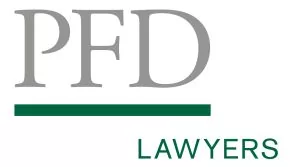Freedom of expression and the right to one's reputation are guaranteed under the Canadian and Québec charters of rights. In the age of social media and web revolution, while expressing opinions and criticisms that are harsh, negative or indelicate may be appealing, it is certainly not without any risk. Recently, the Human Rights Tribunal heard a complaint filed by Jérémy Gabriel against Mike Ward, popular comic stand-up. In fact, many people vehemently denounced the comments made by Ward and the serious damages suffered by Gabriel whereas others defended the humorist and the right to freedom of expression and satire. In another case that captured the province's attention, Eddy Savoie, the wealthy owner of Résidences Soleil retirement homes, was forced to pay nearly $300000 in moral and punitive damages and legal fees to the daughter of a former resident whom he sued for defamation (Savoie v. Thériault-Martel, 2015 QCCA 591). Then, in another case, the City of Sainte-Marthe-sur-le-Lac was ordered by the Superior Court to pay approximately $ 1.9 million to an engineering firm that it had unjustly accused of misappropriation of funds and fraud, including amounts for moral damages that exceeded the previously established threshold set out by the Quebec Court of Appeal for moral damages arising of corporate defamation (RB consultants inc. v. Ste-Marthe- sur- le-Lac (City of), 2015 QCCS 3824) .
There is no doubt that freedom of expression and the right to one's reputation are often crucial issues that may stem from professional, entertainment, corporate and social contexts. Furthermore, the notion of public interest is also pivotal in defamation cases. Today, social, professional and business interactions are sometimes extended in traditional and social media, broadening the scope of the concept of public interest and inevitably curbing users' expectation of privacy. In 2015, it is in this specific context that the Quebec Court of Appeal reiterated the principle that public interest constitutes the barometer of defamation: the greater the public interest in a matter, the greater the chances that the defamatory statements will not be considered wrongdoing, in as much as the behavior of the defending party is not unreasonable or faulty.
2015 was without a doubt a year of substantial development for defamation law in Québec. Indeed, the Court of Appeal of Québec—the province's highest court—rendered three key rulings that raised the importance of freedom of expression in matters of public interest.
In Proulx v. Martineau (2015 QCCA 472), the Court overturned a trial court ruling that upheld the plaintiff's action in defamation and granted her $45000 in moral and exemplary damages. In this particular case, Gilles Proulx, a high-profile and colourful Québec reporter and host, wrote a column in response to an article published in Le Journal de Montréal lambasting the decision by the Syndicat de la fonction publique du Québec (SFPQ) and its president Lucie Martineau to support union members who chose early retirement when the government threatened to abolish their accumulated sick days. In his article, Proulx was very critical of the SFPQ's position, which was endorsed by Martineau, whom he labelled a hypocrite (tartuffe) and an apparatchik and accused of blackmailing the Charest government.
In overturning the ruling, the Court reiterated that assessing fault required a contextual analysis of facts and circumstances and must account for two fundamental but competing values: freedom of expression and the right to one's reputation. It insisted on the importance of distinguishing between a journalistic article that reports facts and journalistic commentary that relates opinions. The Court stated that, in journalistic commentary—which often combines editorial and reporting to express opinion, criticism and positions and may even rely on humour and satire—a journalist's behaviour is not required to comply with journalistic standards but rather those of a reasonable individual in the same circumstances, considering freedom of expression and the right to one's reputation, privacy and honour. Furthermore, the Court affirmed that public figures such as Martineau must accept the risks inherent to their positions and demonstrate a higher level of tolerance for criticism, jokes and satire in light of their public commitments. It also recognized that management-union relations could provoke harsh language that often relies on excess and hyperbole and that a greater degree of tolerance is necessarily required. The Court therefore concluded that the trial judge had failed to take the context and significant analysis factors into account and overturned the ruling.
Société TVA inc. v. Marcotte (2015 QCCA 1118) stems from an episode of J.E. on the sale of a horse with a hidden defect. In this case, the individual who purchased the horse chose to denounce the injustice he believed he had suffered rather than take action against the sellers in light of their anticipated low solvency. J.E. considered that the private incident raised issues of significant public interest: the lack of regulations on equestrian transactions and of a registry for buyers and sellers to know a horse's history and the importance of requiring a complete and independent veterinary examination before purchasing a horse. J.E. therefore broadcast its investigative report and recounted the dispute between the buyer and Nathalie Marcotte and Claude Delorme, who sold the horse. Marcotte and Delorme felt that they had been slandered in the report and took action against TVA and the buyer.
The Superior Court of Québec found the journalist, the broadcaster and the purchaser who had appeared in the episode liable. It considered J.E.'s version of the facts to be sensationalized and unfair and the buyer's intent to be malicious since he had sought to resolve the dispute through the media rather than in a Court of justice. The judge ordered them to jointly pay $155000 to the defendants in damages for injury to their reputations and as compensation for their financial losses since they claimed that the report had caused the demise of their small horse sales business.
In another unanimous decision, the Court of Appeal overturned the ruling on these grounds:
- The topic of the report was of public interest, as recognized by the trial judge.
- The choices made by producers and journalists to address a specific topic of public interest are theirs alone.
- Freedom of expression and public interest are of importance in investigative journalism.
- The analysis of the media report must be fair and objective (the report itself is not on trial) and is not quantitative. As such, a journalist is not required to grant the same focus to all the protagonists or allow equal time to present each party's position.
- An investigative report may have a defamatory effect without the journalist's approach being at fault.
- Using a specific case from the private sphere to illustrate a matter of public interest is justified in investigative journalism.
In sum, the Court reaffirmed that public interest is an important barometer to determine the balance point between protecting one's reputation and freedom of expression. In other words, the more significant the public interest, the more the law will tolerate the impact of statements on one's reputation.
Finally, in Gill v. Chélin (2015 QCCA 1280), Louis Gill and the Syndicat des professeurs de l'UQAM appealed a ruling by the Superior Court of Québec that upheld an action in defamation brought by Annie Chélin and which required them to pay $35000 in damages to her reputation.
Chélin claimed that three articles published by Gill in the union newsletter were defamatory and caused significant prejudice. The articles in question recounted a labour dispute—specifically the non-renewal of Chélin's teaching contract by the university—in which Gill had been involved as a union representative. Gill severely criticized Chélin's behaviour throughout the legal saga, which went on for 15 years and led to several judicial rulings that were virtually all unfavourable to Chélin's position.
The trial judge found that, at best, the topic of the articles was of minimal public interest since it was unduly focused on Chélin, who is not a public figure. The judge also concluded that the articles suggested that Chélin was rude, obstinate and profligate and acted querulously despite not having any rights to exercise and affirmed that the articles were defamatory.
In overturning the ruling, the Court of Appeal revisited the contextual analysis in defamation law. The Court reaffirmed that determination of fault must be based on the criterion of a responsible person in the same circumstances and not based on journalistic standards since Gill was not a journalist. For the Court, the use of the justice system is a matter of public interest in and of itself and Chélin's participation in a drawn-out court battle constituted social actions that considerably reduced her expectation of privacy. It is important to note that the Court indicated that, in the context of defamation, freedom of expression includes the right to criticize and comment court rulings and that Gill was not required to show more deference in his criticism of the legal dispute in which Chélin was involved based on the fact that he had also taken part in it. The Court recognized that Gill's unambiguous, incisive and vivid writing had been published as an editorial and not as a scientific article. In this context, his statements are not unreasonable and do not go beyond what is acceptable.
Comments
It is interesting to note that leave to appeal to the Supreme Court of Canada have been filed in the Marcotte and Chélin cases. We will be following the developments in these matters, though it would be surprising if the Supreme Court agreed to hear these cases.
Furthermore, the three rulings highlight the fine line between freedom of expression and the right to one's reputation. Before publishing or broadcasting information that could be damaging to your business partners or competitors or in fact to anyone, it is important to be certain that the reported facts are true and of public interest. Facts must also be presented accurately, fairly and transparently.
Should you require further counsel in matters of press release or any form of public communication, do not hesitate to contact one of the lawyers in our firm.
About Mackrell International - Canada - Prévost Fortin D'Aoust is a Quebec based business law firm with offices in Montreal, Saint-Jérôme, Boisbriand, Sainte-Agathe-des-Monts and Laval, and a member of Mackrell International. Mackrell International - Canada is comprised of four independent law firms in Alberta, British Columbia, Ontario and Quebec. Each firm is regionally based and well-connected in our communities, an advantage shared with our clients. With close relations amongst our Canadian member firms, we are committed to working with clients who have legal needs in multiple jurisdictions within Canada.
This article is intended to be an overview and is for informational purposes only.

